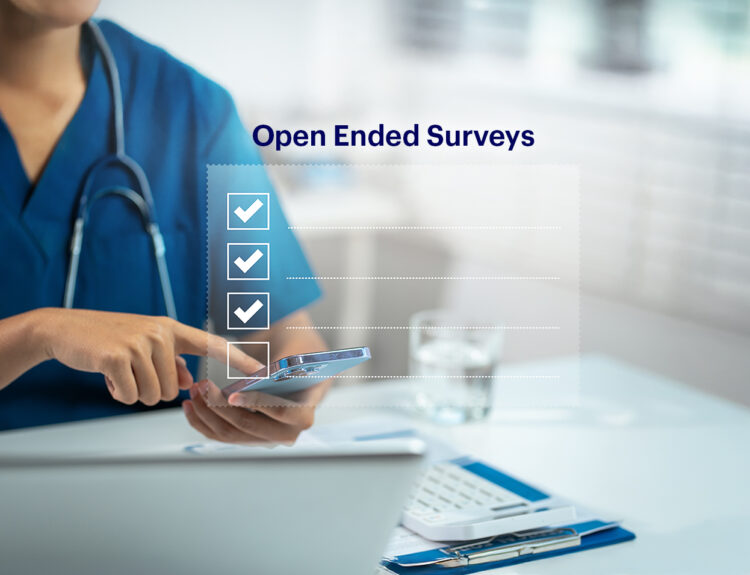There’s no stopping the healthcare revolution, with novel breakthroughs in medical research redefining the limitations of life-saving therapeutics.
Market research companies conducting medical surveys are the foundation of these innovations. They are the bridges connecting healthcare professionals (HCPs) and patients to medical device manufacturers, pharmaceutical organizations, and other stakeholders in the industry.
What sets medical research surveys apart from traditional surveys is the honorarium system, where the HCPs participating in the surveys are incentivized with monetary rewards in recognition of their time and expertise. However, a counterintuitive concept distinguishes high-impact medical surveys from others: delayed gratification.
Emerging research suggests that instead of the conventional method of upfront payments or rewards to encourage participation, introducing a carefully calculated delay in the incentives can lead to better results. It can elevate the quality of data collected and potentially cultivate long-lasting relationships with participants, paving the way for future collaborations and accelerating scientific progress.
The effectiveness of delayed gratification in medical surveys depends on how HCPs perceive future rewards. According to a research paper on time perspectives and delay of gratification by Kim SJ, Kim HK, and Kim K (2020), “Success or failure in the delay of gratification would be influenced by the perceived possibility of getting a future reward. The possibility of a future reward could differ depending on one’s view of life. Individuals with a negative view of life have an anxious tendency to take immediate rewards because the reward may become unavailable over time. Individuals with a positive view of life think that future rewards are available, so they consider future rewards worth the wait.”
The willingness to wait for rewards depends on individual outlook. HCPs with a positive, future-oriented view are more likely to find future rewards worth the wait, motivating them to complete the surveys. Conversely, HCPs with a negative perception may doubt the rewards, leading to lower engagement and rushed responses.
Therefore, a positive outlook is crucial for more accurate research outcomes, which can reap benefits beyond monetary rewards. Before we delve into these benefits, let’s explore why HCP perception plays a crucial role throughout the study cycle.
MEDICAL RESEARCH PROJECTS ARE TIME AND COST INTENSIVE
The preparatory phase alone, from designing the surveys and selecting a panel, is complex and lengthy, requiring substantial time, resources, and dedication.
Once a study commences, researchers must navigate challenges that further prolong project duration. Recruiting adequate qualified participants can be difficult, with stringent eligibility criteria and a limited pool of potential candidates. Even after successfully enrolling participants, the logistics of data collection can present new complexities. Unexpected findings, technical glitches, or external factors beyond one’s control can necessitate adjustments, further extending the study’s timeline.
Despite this, a medical market research firm must remain steadfast in its commitment to maintaining the integrity and thoroughness of its investigations. While the field time for medical research projects may stretch far beyond initial projections, this extended duration is often necessary to ensure the integrity and accuracy of the results, which are crucial for advancing medical knowledge and improving the healthcare infrastructure. HCPs can make a more significant impact on these projects by remaining engaged in the study.
THE PAINSTAKING PATH TO CREDIBLE FINDINGS
The cornerstone of high-quality medical research is thoroughness, which demands attention to detail at every stage, from the initial collection of raw survey data to the final synthesis of findings into a comprehensive report.
The medical market research firm must verify the accuracy and reliability of the survey responses before preparing the final report. This rigorous review and analysis process is painstakingly time-consuming, but it is an indispensable step in upholding the survey’s integrity. Market research firms conducting medical surveys often navigate through complex datasets, cross-referencing multiple sources and examining every potential anomaly. The complex data is then distilled into clear and concise insights that capture the implications of its discoveries.
Rushing through this critical phase can compromise the validity and credibility of the research findings while undermining their acceptance within the broader scientific community. This can be detrimental to the medical market research firm, HCPs, and patients who are supposed to benefit from the surveys.
THE VALUE OF DELAYED GRATIFICATION FOR HCPs IN MEDICAL RESEARCH

Now that we are familiar with the role played by HCPs in medical research projects, let’s explore how the anticipation of the rewards–or delayed gratification–can benefit the HCPs beyond monetary gain and professional growth.
Intrinsic Motivation: For many HCPs, research involvement goes beyond financial compensation—it’s a commitment to advancing scientific knowledge and improving patient outcomes. A small delay in gratification reinforces this intrinsic motivation, reiterating the profound impact their work has on patient lives and the scientific community.
Sense of Anticipation: Imagine a physician who has dedicated countless hours to ensuring the integrity of a clinical trial. Instead of immediate compensation, a thoughtfully timed delay creates a sense of anticipation akin to unwrapping a long-awaited gift. The anticipated reward creates a renewed sense of purpose and pride in their achievements.
Continued Learning: Paid healthcare surveys provide exposure to the latest developments in their field. These surveys often incorporate informative components or require participants to familiarize themselves with new treatments, cutting-edge technologies, or emerging healthcare trends. By remaining engaged in these surveys for a longer time, they can broaden their knowledge, gain insights into innovative practices, and stay informed about the latest advancements shaping their respective disciplines.
Fruitful Outcomes: Although it is tempting to reap the rewards immediately, the urges of premature gratification can compromise research integrity. By embracing delayed gratification, HCPs can prevent deviation from protocols, maintain engagement throughout the study, and ensure their responses lead to valuable insights that can improve healthcare.
Even if it might take some time for HCPs to receive their honorariums, their contributions will have a more significant impact, leaving a bigger footprint on the healthcare space.
Nevertheless, it falls upon the medical market research firms conducting the studies to strike the right balance. An excessively prolonged delay could lead to frustration among HCPs and diminish the positive effects of anticipated rewards. Therefore, careful consideration should be given to the timing and communication surrounding delayed payments, ensuring HCPs remain informed and engaged throughout the process.
PATIENCE PAYS OFF IN THE END
The concept of delayed gratification may seem paradoxical. However, upon closer examination, it becomes evident that embracing patience is essential for propelling medical progress. It helps medical market research firms and HCPs develop a deeper appreciation for attention to detail and unwavering commitment to ensure the credibility of their findings.
The occasional delay in gratification should not be viewed as a hindrance but rather as an opportunity to cultivate a shared mindset of patience, which underpins the essence of medical progress.
If you are an HCP interested in advancing healthcare by sharing your professional experiences and insights, you can register with MDForLives. The platform allows healthcare providers and patients to participate in paid medical surveys tailored to their expertise.
You can also share case studies, articles, and blogs at collaboration@mdforlives.com and earn exclusive rewards!
REFERENCES:
Time Perspectives and Delay of Gratification – The Role of Psychological Distance Toward the Future and Perceived Possibility of Getting a Future Reward
www.ncbi.nlm.nih.gov
Improving HCP participation in primary market research
pharmaphorum.com
A. Royden D’Souza is a professional writer with over 5 years of experience in the healthcare industry. He holds an engineering degree and has worked with several brands to meet their content requirements. He is passionate about writing engaging content for healthcare professionals, allied healthcare professionals, and nurses.






